Elk camps are magical places where men and women come together to live an outdoor dream. Although images of huge antlers and the screams of rutting beasts fill the imagination, each person deals with the probability that they may not get a shot, as the average percentage on all hunts is rarely more than success one year in three or four.
 Elk hunting is an immersion into the wilderness. These majestic animals live in pristine environs were human intrusion is difficult, and sometimes damn near impossible. Ironically, many of the West’s best summering grounds are on public land, where they bear their young, recover from the ravages of winter, and then renew the life cycle again before leaving the snow-covered mountains for the safety of lower altitudes.
Elk hunting is an immersion into the wilderness. These majestic animals live in pristine environs were human intrusion is difficult, and sometimes damn near impossible. Ironically, many of the West’s best summering grounds are on public land, where they bear their young, recover from the ravages of winter, and then renew the life cycle again before leaving the snow-covered mountains for the safety of lower altitudes.
 Aspen groves and elk country are nearly synonymous. Although wapiti usually bed in the cool seclusion of dark timber where sunlight never enters, they travel through and feed among the majestic white barked trees with leaves that turn golden as summer changes to winter. Note the full moon.
Aspen groves and elk country are nearly synonymous. Although wapiti usually bed in the cool seclusion of dark timber where sunlight never enters, they travel through and feed among the majestic white barked trees with leaves that turn golden as summer changes to winter. Note the full moon.
Self-sufficiency is paramount in elk camp. Often miles from the nearest electrical amenity, hunters cook on gas grills or on an open fire. Those who rarely cook at home are suddenly inspired to be camp chefs. At each meal, meats like venison are seasoned with inspiration and the quest for the next shooting opportunity.
 Hunting elk requires patience, the honing of shooting skills, and the best gear a hunter can find. A bull elk often exceeds 600 lbs. on the hoof and despite their huge size can easily hide among fallen timber and silently escape when human scent is detected. Magnum calibers are often required to take them: Witness the Ruger in .338 RCM.
Hunting elk requires patience, the honing of shooting skills, and the best gear a hunter can find. A bull elk often exceeds 600 lbs. on the hoof and despite their huge size can easily hide among fallen timber and silently escape when human scent is detected. Magnum calibers are often required to take them: Witness the Ruger in .338 RCM.
 Elk camps are about friendship and interdependence, as members depend upon each other for safety and survival. A simple ankle sprain can be fatal if a hunter is trapped in freezing conditions without assistance. Once success happens, quartering and field dressing the huge animal is a formidable task for a lone hunter.
Elk camps are about friendship and interdependence, as members depend upon each other for safety and survival. A simple ankle sprain can be fatal if a hunter is trapped in freezing conditions without assistance. Once success happens, quartering and field dressing the huge animal is a formidable task for a lone hunter.
 Elk live in truly wild places along with bears, mountain lions, wolves, and coyotes. Encountering a bear track the size of a human head can be unnerving, as the realization sinks in that you are not the only mammal on the hunt. Finding fresh predator tracks in yours is not uncommon.
Elk live in truly wild places along with bears, mountain lions, wolves, and coyotes. Encountering a bear track the size of a human head can be unnerving, as the realization sinks in that you are not the only mammal on the hunt. Finding fresh predator tracks in yours is not uncommon.
 Elk season occurs at a transition time when fall turns to early winter and falling aspen leaves seem to decorate evergreens like a natural Christmas tree festival. The trunks of aspen trees show the knowing marks of elk teeth, as the animals eat the bark when snow covers their normal foods. Areas where hunters walk unimpeded may be covered in 10 feet of snow as winter brings about its full furry and challenges all animals to survive. Elk usually migrate from such areas lest they become trapped and starve or become easy prey for predators. Western states use hunters as managers of the herds, taking appropriate numbers of bulls and cows to keep populations in balance.
Elk season occurs at a transition time when fall turns to early winter and falling aspen leaves seem to decorate evergreens like a natural Christmas tree festival. The trunks of aspen trees show the knowing marks of elk teeth, as the animals eat the bark when snow covers their normal foods. Areas where hunters walk unimpeded may be covered in 10 feet of snow as winter brings about its full furry and challenges all animals to survive. Elk usually migrate from such areas lest they become trapped and starve or become easy prey for predators. Western states use hunters as managers of the herds, taking appropriate numbers of bulls and cows to keep populations in balance.
 Elk hunts provide the opportunity to spend a full day in the wilderness, savoring the enjoyment of watching the sun rise and set with only the hunt between. In the crazy fast-paced world we live in, many rarely have time to see the beginning or end of a day except behind the wheel of a vehicle. Elk hunts are an escape to a simpler time, when self-dependence and reliance mattered most. Whether you tag an elk or not, the experience lives with you for a lifetime and you leave camp with an ever-stronger urge to return.
Elk hunts provide the opportunity to spend a full day in the wilderness, savoring the enjoyment of watching the sun rise and set with only the hunt between. In the crazy fast-paced world we live in, many rarely have time to see the beginning or end of a day except behind the wheel of a vehicle. Elk hunts are an escape to a simpler time, when self-dependence and reliance mattered most. Whether you tag an elk or not, the experience lives with you for a lifetime and you leave camp with an ever-stronger urge to return.

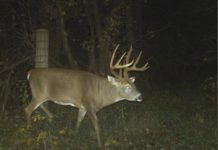
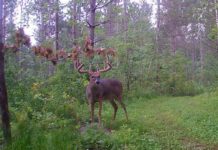
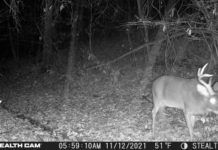





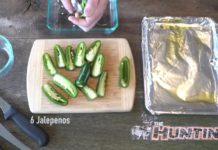

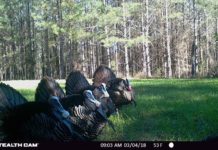

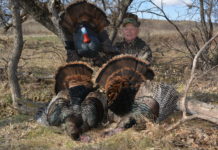

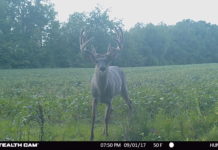
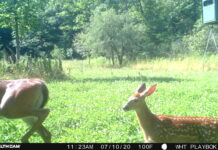
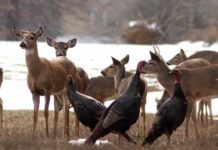

![The Best Deer Camp Chili [VIDEO] Deer Chili Ingredients, Tomatoes, Chili Spices](/wp-content/uploads/2015/10/Deer-Chili-Deer-Camp-Recipe-218x150.jpg)
![How to Call Elk Early in the Season [VIDEO]](/wp-content/uploads/2016/08/byers003-218x150.jpg)




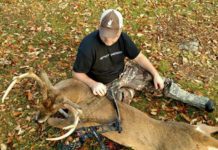


![Idiots Disturb Hunter: How Would You Have Handled It? [VIDEO]](/wp-content/uploads/2015/10/DSC00110-e1474487693878-100x70.jpg)
![Albino Buck Shocked to Shed His Antlers [VIDEO]](/wp-content/uploads/2015/10/AlbinoDeer-100x70.jpg)